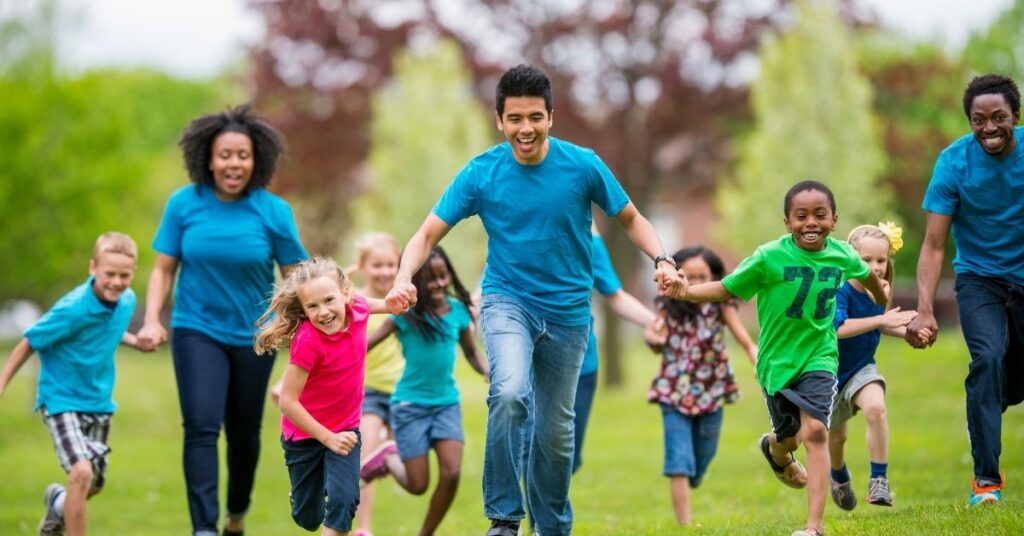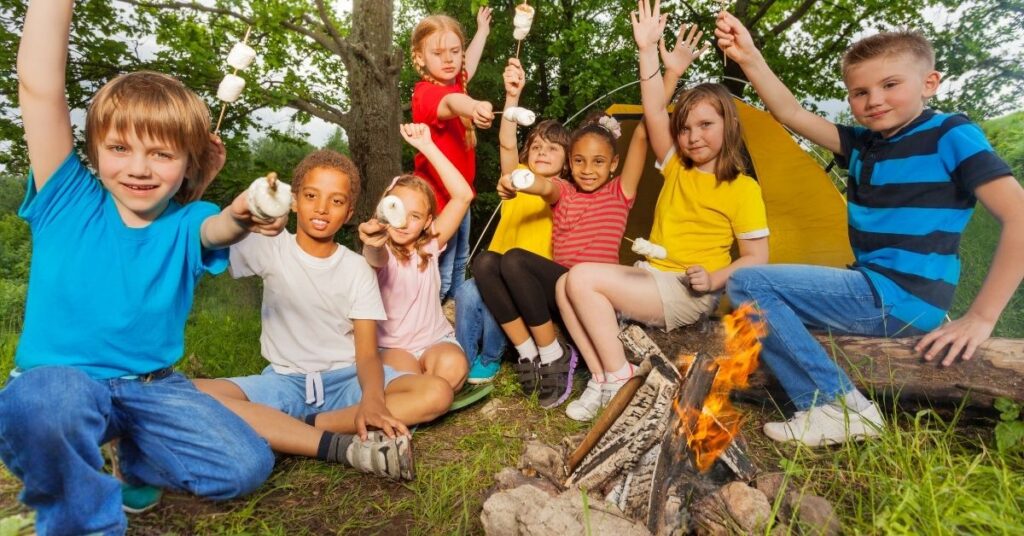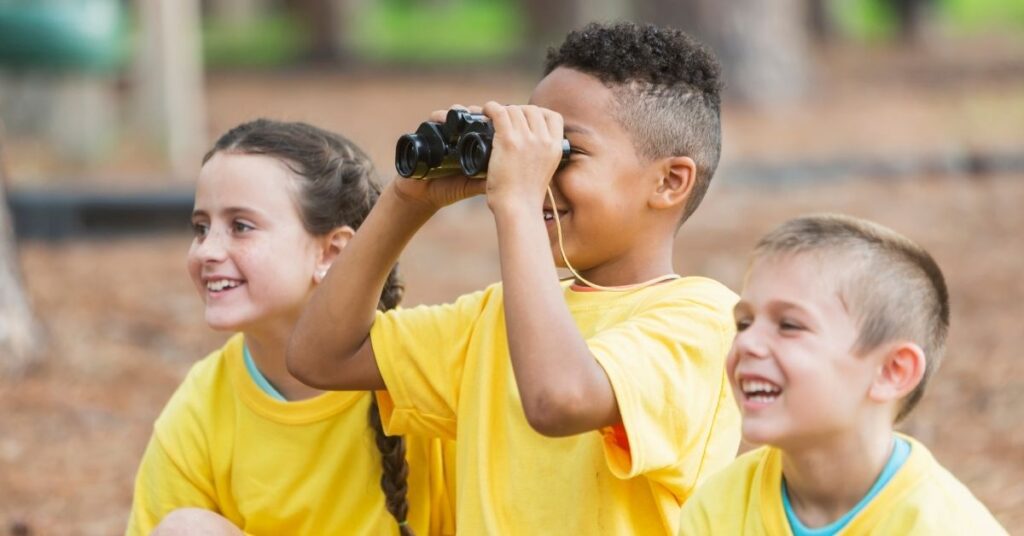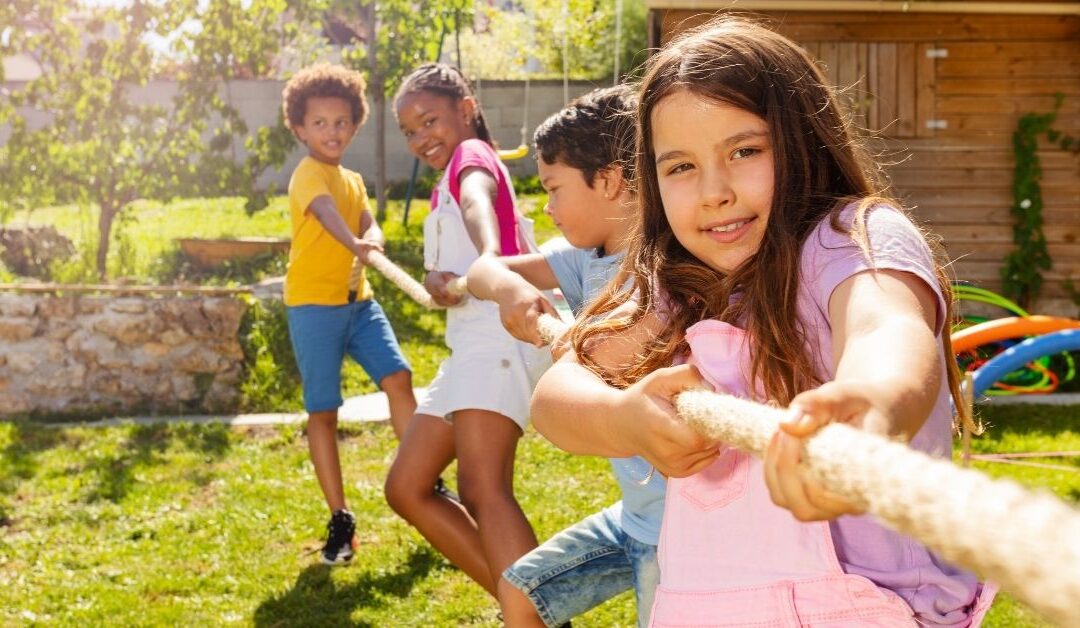Summer and children bring to mind fun, swimming, playing and hot weather. For those of us as parents of children with autism and ADHD, we know that providing structure and activities for our kids will help them. How can we do that during the summer? Summer camp is a great way to keep our children with autism and ADHD active and learning during the summer months.
Our experiences with summer camps
During our son J’s younger years, summer day camp was a staple. It provided both childcare and fun activities to keep him busy during summer. He made new friends, played lots of games, sang songs, went on interesting field trips and so much more. He attended camps at our local YMCA, and one offered by our city’s parks program. In addition to summer camp, he also went to camp for a few days for Christmas and Spring Breaks.
Even as a teenager, he has enjoyed participating in our local autism support group’s summer camp for autistic teens and young adults. He not only is a participant in the activities, but he also likes to help the other campers.
Benefits of summer camp for kids with autism/ADHD
Summer camp offers so many great benefits for our children with autism and ADHD. Here are 11 reasons why summer camp is good for them.

1. Develop social skills
Being around other campers and camp counselors all day gives autistic/ADHD children a lot of opportunity to work on their social skills. J had many caring and nurturing counselors who really worked with him at his camps on social situations. Each summer was a good learning experience for him.
2. Move their bodies
Kids move a lot at summer camp! They play games, participate in sports activities, play on playgrounds and generally run around at camp. At some, they even swim. Camp counselors encourage a lot of physical activity throughout the day, so our kids remain active.
3. Increase mental stimulation
Without a lot of structure, our children’s summer days could look quite sedentary and include a lot of screen time. If your child loves to read, thankfully summer reading time is great! At summer camp, kids make crafts, play games, enjoy interesting and engaging field trips, and learn throughout the day. Overall, camps can increase our children’s mental stimulation.
4. Improve motor skills
Playing sports, running, participating in games, being part of teamwork exercises, and being active overall can contribute to an improvement in motor skills.
5. Promote positive behaviors
With the camps my son has attended in the past, the camp counselors have focused a lot on positive behaviors. For some, they have a “value” they focus on for the week such as respect and responsibility. The counselors also encourage positive interactions between campers.
6. Increase self-esteem
Participating in camp activities can help our autistic/ADHD kids feel better about themselves. Many of our children suffer from low self-esteem, but doing things independently and being involved in group activities can help increase their self-esteem.
7. Boost confidence
Going hand-in-hand with increasing self-esteem is boosting our children’s confidence. When they have positive experiences at camp, it can help increase their confidence.
8. Provides a break for both children and parents
This is a big one. Without school being in session, we need a break from one another. Summer camp is a win for both children and parents. Children are able to participate in fun activities and thrive in the structure of summer camp. Parents have a childcare option that allows them to work or get things done around the house (or take a well-deserved rest!).

9. Creates a sense of belonging
In many camps, campers are split into groups or teams. They do activities together, and they compete as teams against other teams in games or competitions. Being part of a group or team can help our kids feel a sense of belonging.
10. Provides an opportunity to make friends
Summer camps provide such a great opportunity for our autistic/ADHD kids to make friends with others. J usually made friends with at least two other kids at camp for the summer and spent a lot of time with them. Of course, he also did things on his own when he felt a bit overwhelmed.
11. Builds independence
Summer camp is a great way for kids to build independence and learn new skills. They have to keep track of their stuff. (As any parent knows, that is a challenge. We’ve all been searching through the lost and found boxes looking for their sunscreen, swimsuits, lunch boxes and more!) Camp counselors do a good job in general of helping campers learn how to do things on their own.
Considering overnight camp for your child?

While day camps are a wonderful summer option for children with autism and ADHD, overnight camps can be a great experience too if your child is ready for it.
If you are thinking about sending your child to overnight camp, it’s important to evaluate their camp readiness. The Indiana Resource Center for Autism has this terrific article about overnight camps for autistic children and teens. They suggest you ask the following questions about whether your child would be ready for camp:
“1. Has my child successfully stayed overnight away from home while family members were present (i.e., in a motel on vacation or at a relative’s house)?
2. Has my child ever successfully stayed somewhere overnight without me or my spouse being present?
3. How does my child feel/behave when separated from family members?
4. How does he cope with new experiences? Does preparation for a new experience help with his coping ability?
5. Has he been exposed to any positive or negative information/myths about overnight camping from schoolmates, relatives, or neighbors – and if so, has he been influenced by them? Has he been exposed to media that paint the camp experience in a positive light? (Because various media tend to incorporate exaggeration or absurdity in order to enhance entertainment value, they may not always frame a given experience positively, thereby potentially raising your child’s anxiety about going to camp). Has my child expressed any concerns about the experience? Is he receptive to the idea of going to camp?
6. Has my child ever been to a day camp? Has he visited a fellow family-member at an overnight camp on visiting day?
7. Is he intellectually mature enough at this time to be away for an extended period without parent support? Would a day-program be more suitable as a first-time camp experience? Would one night rather than four nights away from home offer a better first experience?
8. Would any typical camp activities or social situations pose an extreme challenge or be a source of stress for my child? For example, would engaging in sensory-based craft activities, eating camp food, or getting dressed in a common area make my child very uncomfortable? If so, would additional maturity and time minimize the problem, or would this be a persistent issue that will just have to be addressed?”
The article mentioned above also provides some great advice on how to research various camps and ultimately how to choose one.
How to find summer camps
Now that you know the benefits of summer camp for your child with autism and ADHD, your sold and want to sign them up. But how do you find camps? Here are some suggestions.
- If you have a YMCA nearby, they offer some great summer camps. My kids attended camp at our local Y, and that same YMCA ran the camp that my employer offered as well.
- Check with your local parks and recreation department since many of them offer camps.
- Contact your local autism organization to see if they offer or recommend summer camps for children with autism. Many local Easterseals organizations offer summer camp programs too.
- Check out the VerySpecialCamps website. They offer a running list of camps for kids and teens with autism.
- The American Camp Association has a comprehensive Find a Camp site that allows you to refine your search for your area, disabilities and other criteria.
- Search for local camps on Google. You may find some great options. My younger son loves attending a local wilderness survival camp that we came across by doing a general search for camps.
How to afford summer camp
Are you having a hard time affording summer day camp? There is financial help available.
- Some autism grants cover day camps for children with autism.
- This article from the American Camp Association provides some good information about how to find camp scholarships and other ways of funding camp.
- Check to see if your child’s Medicaid waiver covers your camp costs. When J attended our local autism support group’s camp, they used a PAC provider, so camp was covered except a small weekly activity fee that we had to pay out of pocket.
Has your child with autism and ADHD had a positive experience with summer camp? If so, leave a comment and let us know any tips you have for finding a camp and how to encourage your child to get the most out of camp.







